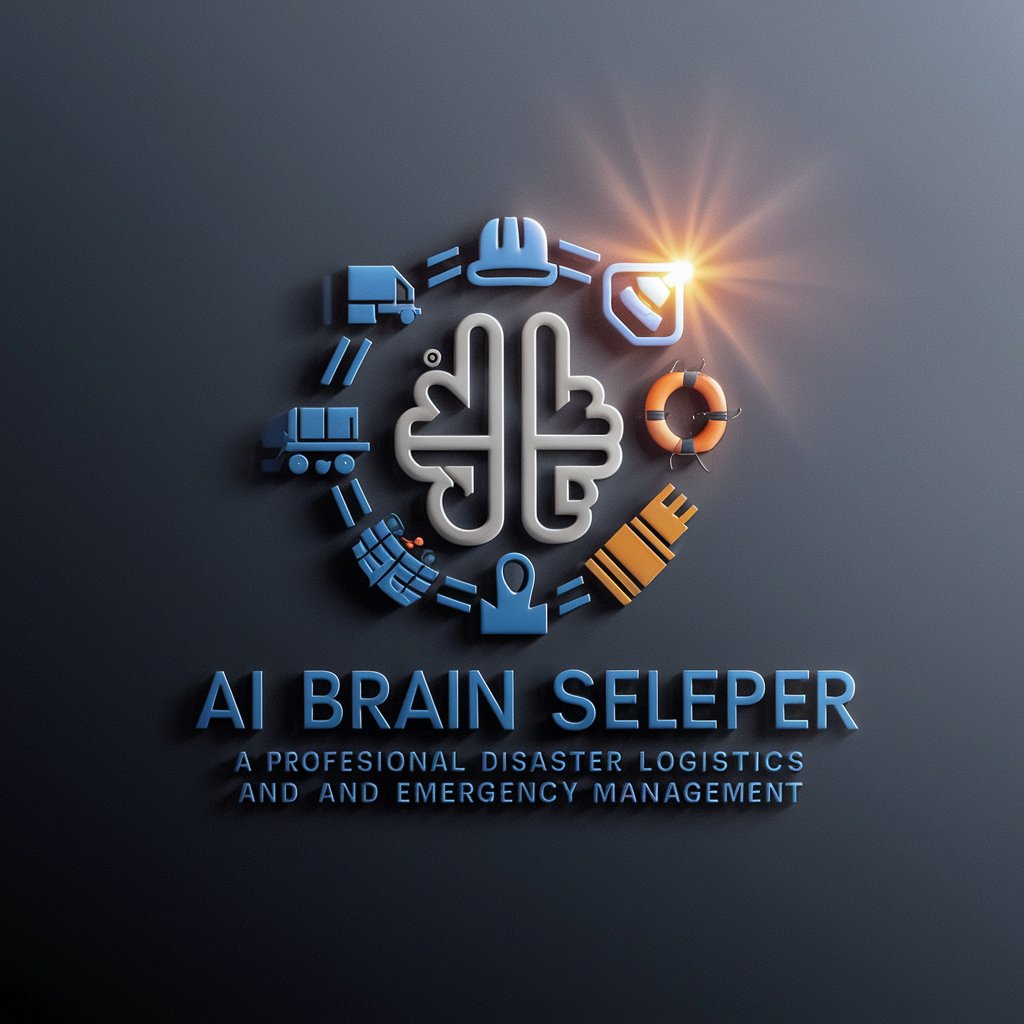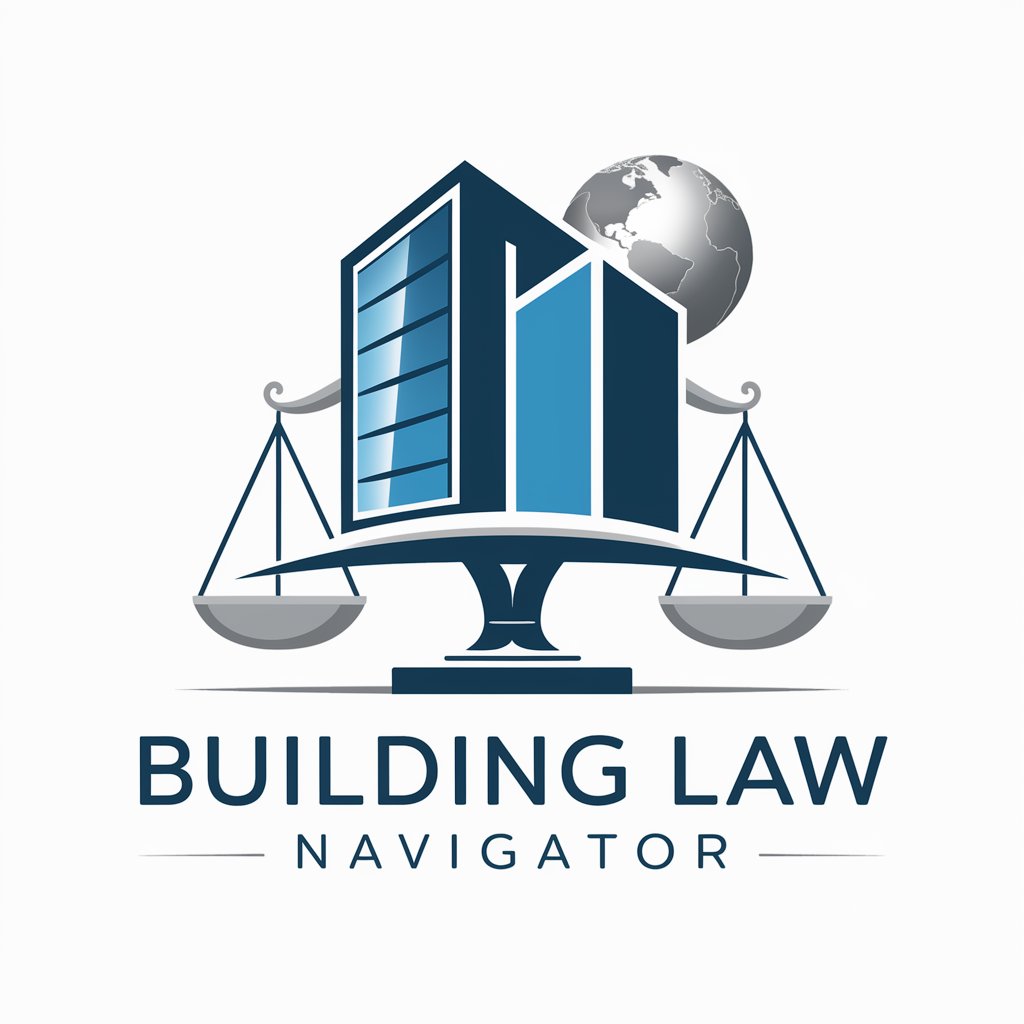8 GPTs for Building Codes Powered by AI for Free of 2025
AI GPTs for Building Codes are advanced artificial intelligence tools designed to assist with the interpretation, application, and management of building codes and regulations. Leveraging the power of Generative Pre-trained Transformers, these tools offer tailored solutions to professionals in the construction and design sectors, streamlining compliance processes and enhancing decision-making. By understanding the context and details of building codes, AI GPTs can provide precise information, suggestions, and automated checks to ensure projects adhere to required standards.
Top 8 GPTs for Building Codes are: AID-AI,Eco Housing Planner,TuleohutuseSeadus,AFH Advisor Pro,Building Law Navigator,Building Expert,Tony the Contractor,SovereignFool: InsulationInstaller
AID-AI
Streamlining Emergency Management with AI

Eco Housing Planner
Empowering Sustainable Housing with AI

TuleohutuseSeadus
Your AI-powered guide to Estonian building standards.

AFH Advisor Pro
Empowering Care Through AI

Building Law Navigator
Navigate Building Laws with AI Precision

Building Expert
AI-driven construction and renovation advisor

Tony the Contractor
Empowering Your Home Projects with AI

SovereignFool: InsulationInstaller
Empowering efficient insulation with AI

Key Attributes and Functions
AI GPTs for Building Codes feature a range of capabilities designed to support the unique needs of the construction and regulatory fields. These include natural language processing for interpreting complex code language, adaptability to various jurisdictions' codes, and the ability to provide detailed explanations of code requirements. Special features might encompass technical support for understanding code applications, web searching for the latest code amendments, image analysis for plan reviews, and data analysis for risk assessment in construction projects. These tools are continuously learning, ensuring they remain up-to-date with the latest in building standards and technology.
Who Benefits from Building Code AI
The primary users of AI GPTs for Building Codes include professionals in the architecture, engineering, and construction industries, such as architects, engineers, building inspectors, and code consultants. These tools are also invaluable for students and educators in these fields, offering an accessible platform for learning and interpretation without the need for advanced coding skills. Additionally, developers with programming expertise can customize these AI tools for specific project needs or integrate them into existing digital workflows, enhancing efficiency and compliance accuracy.
Try Our other AI GPTs tools for Free
Nursing Delegation
Discover AI GPTs for Nursing Delegation: Tailored AI solutions designed to optimize task delegation in nursing, enhancing efficiency and patient care.
Diet Logging
Discover how AI GPT tools revolutionize diet logging with personalized tracking, analysis, and dietary recommendations, making nutrition management accessible to all.
Plant Watering
Discover how AI GPTs revolutionize plant watering with smart, tailored advice and automated care solutions, making plant care effortless and more efficient for everyone.
Outdoor Cleaning
Discover AI-powered GPTs for Outdoor Cleaning: your solution to efficient, effective outdoor maintenance. Tailored AI advice, optimized routes, and innovative strategies at your fingertips.
Patio Care
Discover how AI GPTs for Patio Care transform outdoor living spaces with personalized, intelligent solutions for maintenance, design, and more.
Landscape Hydration
Explore the transformative power of AI GPTs in Landscape Hydration, enhancing environmental analysis, resource management, and data-driven decision-making.
Further Perspectives on AI for Building Compliance
AI GPTs for Building Codes exemplify the potential of customized AI solutions across various sectors, particularly in enhancing regulatory compliance and operational efficiency in the construction industry. Their user-friendly interfaces facilitate broad accessibility, while the option for advanced customization supports diverse professional needs. Integration with existing systems underscores the versatility of these tools, making them a valuable asset for any project requiring adherence to building codes.
Frequently Asked Questions
What exactly are AI GPTs for Building Codes?
AI GPTs for Building Codes are artificial intelligence systems that specialize in interpreting, explaining, and applying building regulations and codes. They utilize machine learning to offer tailored assistance to professionals in the construction and design fields.
How can these AI tools assist with building codes?
These tools can interpret complex legal and technical language, provide explanations and applications for specific projects, suggest compliance solutions, and automate the review of construction plans against applicable codes.
Who can benefit from using these AI tools?
Architects, engineers, building inspectors, code consultants, students, and educators in construction and design fields, as well as developers looking to integrate AI into their workflows.
Do I need programming skills to use these tools?
No, these tools are designed to be accessible without advanced coding skills, though developers can leverage programming for further customization.
Can AI GPTs for Building Codes adapt to local regulations?
Yes, they can be tailored to understand and apply codes specific to different jurisdictions, adapting to local, national, or international building standards.
How do these AI tools stay up-to-date with new regulations?
They continuously learn from new data, including amendments to building codes and regulations, ensuring they provide the most current advice.
Can these AI systems integrate with existing digital tools?
Yes, they are designed to be interoperable with existing digital workflows and systems, allowing for seamless integration and enhanced functionality.
What makes AI GPTs for Building Codes unique compared to other AI tools?
Their specialized focus on building codes, capability to interpret complex regulatory language, and adaptability to specific compliance requirements set them apart from generic AI solutions.